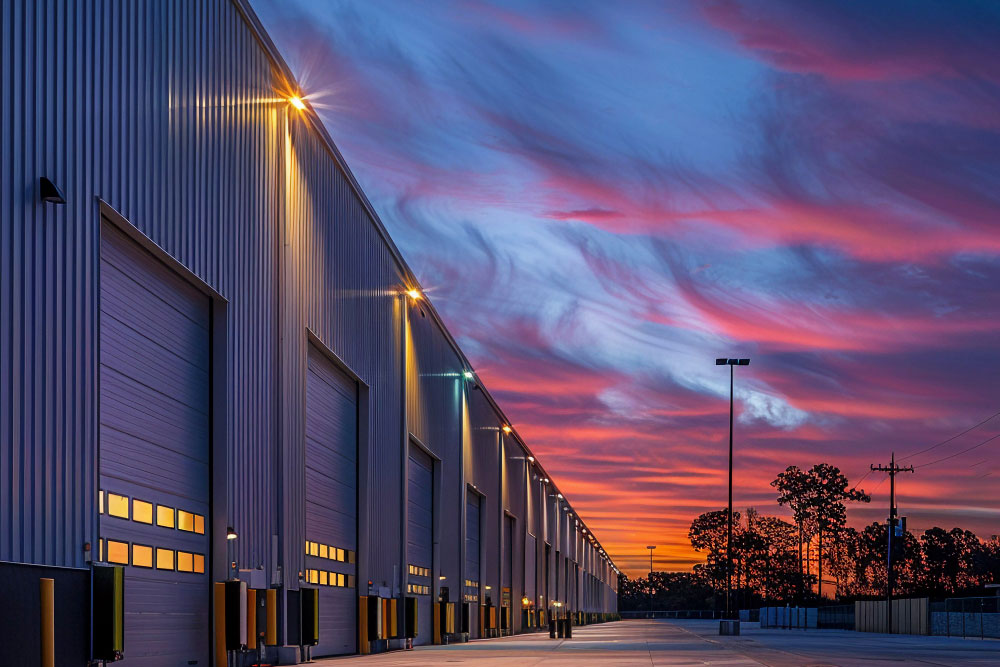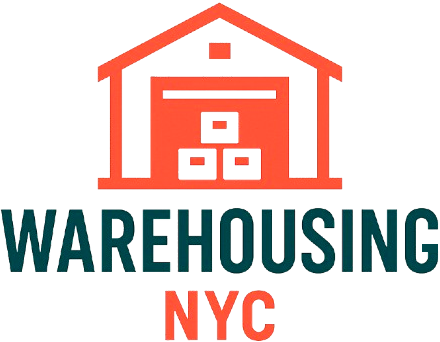Businesses can’t afford delays, errors, or wasted space. That’s where warehouse logistics comes in. Put simply, warehouse logistics is the management of every operation inside a warehouse. With the help of warehouse logistics services, businesses can reduce costs, improve efficiency, and deliver a better customer experience.
But what exactly does warehouse logistics involve, and why is it so important for growing companies? Let’s break it down.
Key Takeaways
✔ Warehouse logistics solutions manage every warehouse function—receiving, storing, picking, and shipping—to optimize the supply chain.
✔ Effective logistics warehouse management systems reduce costs, improve accuracy, and streamline operations.
✔ Warehousing logistics services boost efficiency by improving order fulfillment, inventory control, and last-mile delivery.
✔ Partnering with a skilled warehouse logistics company ensures visibility, scalability, and customer satisfaction.
✔ A trusted warehousing & logistics service provider in New York can give businesses a competitive edge.
Table of Contents

What Are the Two Basic Types of Warehouses?
Warehouses generally fall into two categories: private warehouses and public warehouses.
- Private warehouse: Owned and operated by businesses that use them exclusively for their own inventory. Retailers, manufacturers, and wholesalers often choose this option for tighter control.
- Public warehouses: Operated by third parties who lease space and offer warehousing logistics services to multiple businesses.
For companies in competitive hubs like New York, choosing the right option often depends on their growth stage, budget, and distribution needs. With warehouse vacancy rates rising to 7.1% in Q2 2025 from 6.1% the year before, demand for strategic space planning is high.
Partnering with a warehouse logistics company ensures businesses secure the right facility and optimize its use, turning market fluctuations into an opportunity for efficiency and savings.
What Are the Types of Logistics?
Inbound Logistics
Inbound logistics focuses on the movement of raw materials and supplies into a warehouse or production facility. This involves transportation, receiving, and storage. With the help of warehouse logistics services, companies can minimize delays, reduce costs, and gain better visibility over their supply chain.
Outbound Logistics
Outbound logistics handles the flow of finished goods from the warehouse to customers, retailers, or distributors. By leveraging modern logistics warehouse management systems, businesses can track shipments, optimize routes, and deliver orders on time. A reliable warehouse logistics company ensures this process runs without disruptions.
Reverse Logistics
Reverse logistics covers the return of goods back to the warehouse, whether due to customer returns, recalls, or recycling initiatives. Strong warehouse logistics solutions make reverse logistics seamless by integrating inventory updates, restocking, and disposal in a cost-effective manner.
Third-Party Logistics (3PL)
Third-party logistics (3PL) refers to outsourcing some or all logistics functions to an external provider. A skilled warehousing & logistics service provider can manage transportation, storage, fulfillment, and even reverse logistics.

Key Aspects of Warehouse Logistics Solutions
Receiving
The first step in logistics warehouse management is receiving goods accurately. Proper inspection, scheduling, and technology like barcode scanning prevent errors before they occur. Efficient receiving ensures products are ready for quick storage and reduces costly bottlenecks later in the process.
Storage
Effective storage means more than stacking goods—it involves planning for safety, efficiency, and accessibility. A logistics warehouse management system ensures optimal space utilization. Smart storage design also improves picking speed and helps companies maximize every square foot of their facility.
Order Fulfillment
From picking to packing, order fulfillment is the heart of warehouse operations. A strong warehouse management system in logistics speeds up workflows while reducing mistakes. Streamlined order fulfillment also supports scalability, allowing businesses to handle peak seasons without sacrificing accuracy.
Shipping
Shipping is where promises are kept. With help from a reliable warehousing & logistics service provider, businesses ensure on-time delivery and seamless last-mile distribution. Optimized shipping strategies also lower transportation costs while keeping customers informed with real-time updates.
Inventory Management
Real-time visibility is critical. Advanced warehouse logistics services use automation and software to track stock levels, reducing shortages and overstocking issues. Better inventory control improves forecasting and ensures businesses can adapt quickly to changes in demand.
Why Warehouse Logistics Is Important
Efficiency
Efficient warehousing logistics services mean less downtime, faster order cycles, and improved productivity. This efficiency allows businesses to serve more customers without needing additional space or labor.
Cost Reduction
A well-implemented logistics warehouse management system reduces overhead by optimizing labor, space, and transport expenses. Lower operating costs free up resources for growth and innovation.
Customer Satisfaction
Quick and accurate deliveries keep customers happy—something only strong warehouse logistics solutions can guarantee. Satisfied customers are more likely to become repeat buyers and recommend the brand.
Accuracy
Mistakes cost money. A reliable warehouse logistics company leverages data and systems to prevent costly errors. Higher accuracy also builds trust with clients and strengthens long-term relationships.
Visibility and Control
With WMS tools, businesses gain visibility across the supply chain, something top warehouse logistics companies offer as a core advantage. Greater transparency also empowers managers to make data-driven decisions that improve performance.
What Does TMS Stand for in Logistics?
TMS stands for Transportation Management System—a tool that manages the planning, execution, and optimization of freight.
When integrated with warehouse logistics solutions, TMS creates a seamless connection between warehouse operations and transportation. By working with expert warehouse logistics companies, businesses can manage inventory, routes, and carriers with far greater efficiency.
Tools and Strategies for Warehouse Logistics Services
Warehouse Management Systems (WMS)
A warehouse management system in logistics is the backbone of modern operations. It provides real-time inventory tracking, improves accuracy, and integrates with other supply chain systems.
Warehouse Layout Optimization
Strategically planned layouts improve flow and minimize wasted space. Professional warehouse logistics services ensure design supports both speed and safety.
Automation
From robotics to AI-driven picking, automation is revolutionizing warehousing logistics services. For example, Amazon alone has deployed over 1 million robots in its warehouses, showing how large-scale automation can minimize errors, cut costs, and support scalability.
Data Analysis
A forward-looking warehousing & logistics service provider uses data insights to forecast demand, reduce inefficiencies, and improve decision-making.
What Is the Difference Between Logistics and Warehousing?
Warehousing is primarily about storage, while logistics is about planning, moving, and managing goods throughout the supply chain.
The two overlap through warehouse logistics solutions, which combine safe storage with efficient movement. By partnering with a skilled warehouse logistics company, businesses can align these functions seamlessly, ensuring better cost management and customer service.
Frequently Asked Questions
How do warehouse logistics solutions help small businesses?
Warehouse logistics solutions streamline storage, fulfillment, and shipping, allowing small businesses to cut costs and scale efficiently.
What role does a logistics warehouse management system play in e-commerce?
A logistics warehouse management system improves order tracking, speeds up fulfillment, and reduces errors—critical for fast-moving e-commerce operations.
Can warehouse logistics companies handle seasonal demand spikes?
Yes, warehouse logistics companies use flexible staffing, automation, and smart inventory planning to handle peak-season surges smoothly.
Why should businesses work with a warehousing & logistics service provider?
A warehousing & logistics service provider offers expertise, technology, and resources that improve efficiency and boost customer satisfaction.
How does a warehouse management system in logistics improve visibility?
A warehouse management system in logistics provides real-time data, helping businesses monitor inventory levels and supply chain performance.

Choose the Right Warehouse Logistics Solutions in New York, NY
For businesses in New York, choosing the right warehousing & logistics service provider can make or break supply chain performance. That’s where Warehousing NYC By Best comes in.
As a trusted warehouse logistics company, we offer tailored warehouse logistics services designed to support businesses of all sizes.
Contact Warehousing NYC By Best today to explore how our warehouse logistics solutions can give your business the edge it needs in a competitive market.

